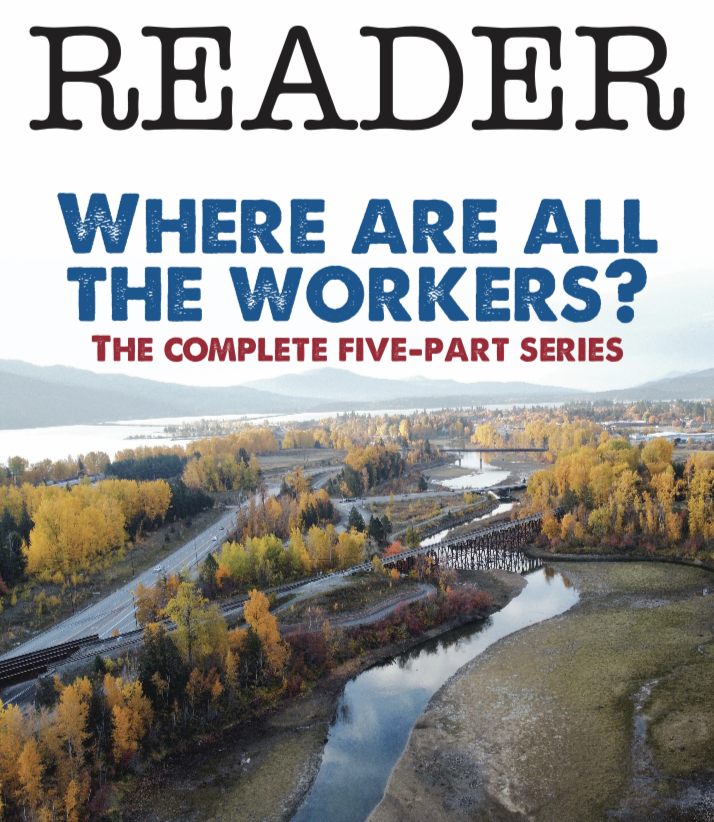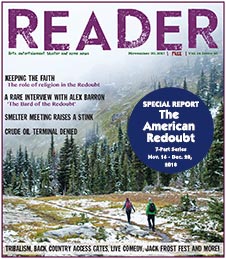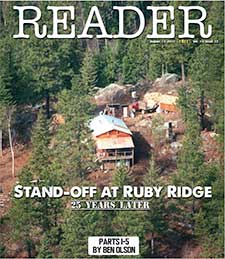Raising Idaho’s minimum wage is only the beginning. Next, bailout the workers
By Daniel Radford
Reader Contributor
Many people I’ve spoken with lately have been understandably peeved (pissed may be a more apt description) at the government’s “theft” of their wages. However, for all the anger with which I deeply empathize, I have yet to meet a conservative — or liberal — who can explain to me why the government takes our money beyond a “we need it” or “they say we need it” dogma.
I for one, want to know why we need welfare at all.
Why do we have people, many of whom are working, who cannot afford to survive on their own? The conservative argument tends to go something like, “We could afford charity if we weren’t taxed by the government,” which is maybe 1% true.
I think we would be able to afford charity and take care of our poor — working or not — if the working class had rights to the product of its labor.
As a worker in a capitalist economy, your labor is priceless to your employer. Despite being paid a meager $12 per hour as a starting wage at Walmart, without you to do the work of selling, stocking and preparing the products for sale, the corporation would not make any profit. To the bosses, we are worth far more than we are paid.
As a worker, we can choose to be concerned with the 7% or so that the government takes from our checks — which really seems to be more the worry of the ownership class — or we can recognize that, despite the government taking 7% of what we are paid, in many cases we are actually paid less than 10% of the product of our labor.
This is the logic behind the campaign by FairWageID.org to #RaisetheWageID to $12 per hour, which will lift many workers out of poverty. A higher minimum wage lets the bosses take less of the wealth we produce, thereby allowing for a more just distribution of profits.
This logic is also behind the Democratic Socialist call for “the right of first refusal,” which would allow the workers of a failed capitalist enterprise — or an unpatriotic company moving their jobs to Mexico or China — the first opportunity to buy the assets from the company that is shuttering their workplace.
Using this right, if workers voted with a simple majority to buy the assets of a defunct or company outsourcing its jobs to another country, they would receive a loan from the United States government to run the enterprise as a worker-owned cooperative in which laborers democratically elect, hire, and fire the bosses.
Labor would qualitatively change and automation would mean more vacations, not more layoffs.
Imagine if such a right had been recognized and policy had existed since 1980. Had this been practiced since 1980, rather than terrible “trickle down”, the Rust Belt may have survived NAFTA and the fall of unionization — and still be called the Industrial Belt.
Such a policy is feasible for Idaho on a state level. We may wish to look to the Preston Model in the UK, which under the leadership of the Labour Party has implemented similar policies locally.
If you want to learn more about these ideas, go to DemocracyatWork.info, and join North Idaho Democratic Socialists online @NorthIdahoDSA on Facebook, Instagram and Twitter.
Daniel Radford is the founder of North Idaho Democratic Socialists of America.









 Coming up this week! Don’t miss Live Music, the Summer Sampler, the Art Party, Monarch Grind, the Sandpoint Renaissance Faire, and more! See the full list of events in the
Coming up this week! Don’t miss Live Music, the Summer Sampler, the Art Party, Monarch Grind, the Sandpoint Renaissance Faire, and more! See the full list of events in the 